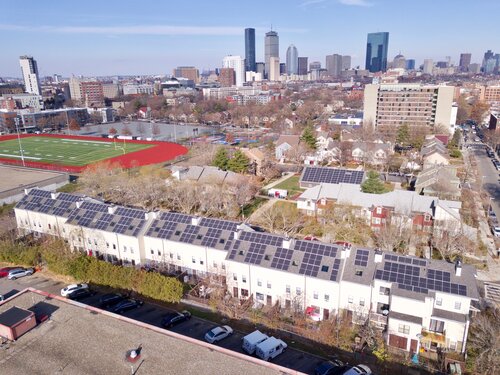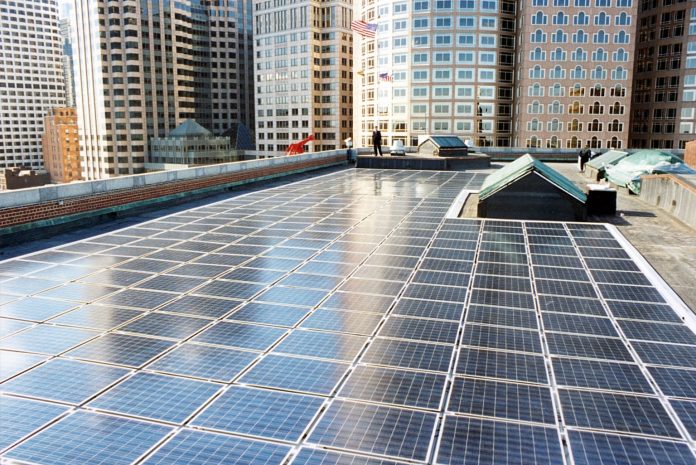Last June, the Massachusetts Solar Technical Assistance Retrofits (STAR) program announced the raising of $10 million in funds to support the development of solar projects on affordable housing units. Launched in January 2021, the nonprofit program offers financial and technical help to community development agencies looking to cut costs through the savings of rooftop solar.
Researching the complex financial and technical aspects of solar projects for numerous multi-unit buildings can be a heavy lift for an already stretched housing agency staff. The program seeks to address this issue by acting as a guiding force through the decision-making process.
In the initial stage, the campaign collected over $40,000 in donations, which were distributed as grants to 15 participating organizations. This allowed the staff to devote time to gathering data for feasibility studies, including utility bills, roof ages, and square footage.

Madison Park housing authority has 580kW of solar over 17 rooftops. Image: Resonant Energy
The pilot run of the program has been deemed a success, as Resonant Energy partnered with the Massachusetts Association of Community Development Corporations (MACDC) and Local Initiatives Support Corporation (LISC) Boston to commit to over 1.2MW of solar projects across 48 affordable housing rooftops. This participation surpassed the program’s pilot goal by 20%.
Thus far, six organizations decided to proceed with solar installations based on the analysis they received through the STAR program. All told, the organizations are expected to save an estimated $1.3 million over the 25-year program. Building the projects on rooftops saved an estimated equivalent of 1,210 acres of land development, said STAR.
“Without the expert assistance and flexible financing options through the STAR program, a shift of this magnitude would have been extremely difficult for us,” said Rafael Mares, Executive Director of The Neighborhood Developers (TND). “The STAR program provided the perfect opportunity for us to transition more than a dozen buildings in our portfolio to using and producing sustainable energy.”
One of the major hurdles in developing solar for housing authorities is the review and consent process with leaders and investors. STAR organizers worked directly with these parties, providing staff time and guidance to streamline the process.
“We launched this program as a pilot to see if we could collaborate to break down the persistent barriers we had been seeing for solar within the affordable housing community,” said Isaac Baker, Co-CEO of Resonant Energy. “Thus far, I have been really impressed with the uptake from the first phase and expect we’ll continue to get participation from that cohort even as we start working with new developers in the next phase.”
The second phase of the program is planned to assist another 15 organizations with grants to perform solar feasibility studies. The Massachusetts Clean Energy Center and the Jampart Charitable Trust will fund the next phase, which should bring the solar commitments from 1.2MW to roughly 3MW. The lifetime benefit of the entire program is expected to surpass $6 million in savings.






